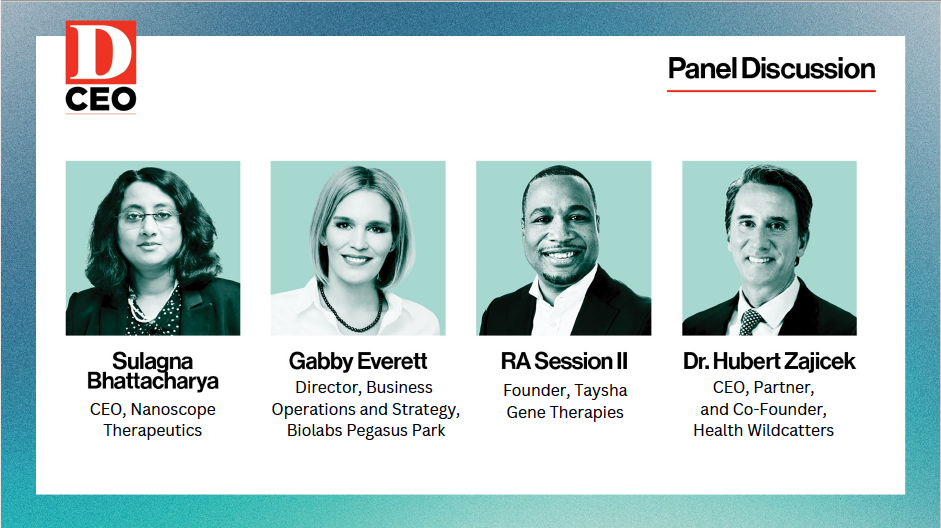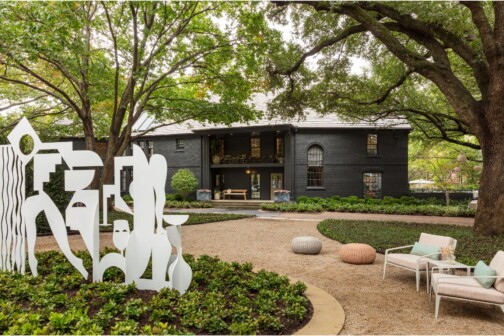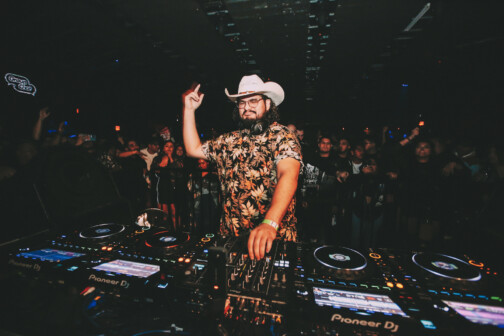The biotech and science industry continues to thrive in Dallas-Fort Worth as more companies recognize the region’s resources. A report from global real estate firm CBRE ranked Dallas No. 6 in the country for emerging biotech markets, and the recent opening of Pegasus Parks with BioLabs and affiliations with UT Southwestern, Health Wildcatters, and several other organizations and startups connected to the industry are bringing visible changes to biotech in the region. Having an easily accessible airport and real estate space to expand the sector in DFW further are more contributing factors to the expansion of biotech in North Texas.
D CEO Healthcare hosted a panel discussing the biotechnology boom in Dallas and the future impacts this industry will have on North Texas.
The discussion included insight from CEOs, founders, and managers from different biotech companies including some successful local startups. The topics ranged from what the biotech future will look like for North Texas to how geography and an affordable real estate industry have had positive outcomes for scientific growth.
Panelists included Sulagna Bhattacharya, CEO of Nanoscope Therapeutics, Gabby Everett, Director of Business Operations and Strategy of BioLabs Pegasus Park, R.A. Session II, Founder of Taysha Gene Therapies and Dr. Hubert Zajicek, CEO, Partner, and Co-Founder of Health Wildcatters.
Continue reading about the panelist’s most engaging takeaways below.
Zajicek on Dallas likely being the #3 metro area, overtaking Chicago in the next 5-10 years:
“I have observed the region for a while, at least the last 15-16 years, through the lens of startups and entrepreneurship and healthcare and biotech. We are here today to discuss that Dallas is one of the major hubs of biotech and healthcare innovation. The stories that these businesses are showing you are the stories of our lives. They’re the stories of families and children and the stories that transcend our region. We’re telling the stories of Dallas because we believe this region deserves the support.”
Everett on the challenges to starting in the biotech industry and how to overcome them:
“We’ve got $4.5 million worth of research equipment. If you are in research or research adjacent, you know that some of the boxes you have in the lab could cost as much as your house. We have a $350,000 piece of equipment, and if you are a brand new startup company, that is a brick wall that you run up against if you only have half a million dollars in seed capital. What Biolabs helps do is decrease that barrier to entry into any market in biotech. We’ve got companies working on cancer therapeutics all the way up to wearable medical devices, and everything in between. We allow companies to get started, make that quick pivot decision if they need to, and grow rapidly if they need to.”
Bhattacharya on Dallas becoming the next biotechnology hub:
“The Dallas airport is a blessing. It’s so central; you can go anywhere. You can cover the west or east coast in a day if you want to. Dallas shows volume and promise, and this area is changing. The talent will come when we show the promise. There are so many good universities here; we can see biotech people coming in; Pegasus and Biolabs happened. It shows the enormous growth happening here. We are so proud to be part of this ecosystem. I know, one day, Dallas will be not only the emerging hub but also the biotech hub.”
Session on starting Taysha Gene Therapies during the pandemic and its lasting impact:
Crazily enough, we decided to start the company during the pandemic. We did a seed round for the company in April of 2020. It was good timing and it was bad timing. It was bad timing because we couldn’t get the company together, but it was good timing because capital was flowing, so we were able to raise $30 million in that seed round. Two months later we were able to close a cross-over round with Fidelity and Blackrock andFranklin Templeton as lead, and and then three months later we took the company public. We were the fastest seed to IPO in biotech history, and that happened here. We were able to get five programs into the clinical during my tenure there and get the company up to a $1.3 billion valuation at its peak. Being able to do that locally is something that is important.”
Zajicek on how Dallas has become a more diversified market when it comes to tech:
“Dallas has become much more diversified around tech. Our region is not a single industry type region. It is much more than that, and technology is at the forefront. I think one of our strengths used to be regarded as one of our weaknesses. That was, we didn’t have an urban core like other places. The distributiveness of our region is a strength that you see. There isn’t just one university that owns the city. There are a number of big, academically affiliated healthcare systems that you can work with. This used to be one of our weaknesses. Now that these research institutions are growing and things are coming together, it’s starting to look like a stroke of genius.”
Everett on why she thinks companies are coming to Biolabs and specifically to Dallas:
“The reasons why companies are coming here are varied. One of them is space. Our space in Dallas allowed these companies to expand rapidly the way they did. Another reason is the cost of doing science. If you’re a founder and you’re looking at the Dallas region, we have incredible research institutions, we have great core facilities, we have investors that are starting to take notice, and we have the lab space and the appetite to bring these people in. Instead of asking the question, why Dallas? The question now is, why not Dallas?”
Session on how the region was the factor in building his companies:
“There were a lot of scary moments. Any time you’re dealing with human life, it’s terrifying. Particularly, what I would consider the greatest form of human life, which is children, is even more terrifying. I’ve been fortunate to see the curative nature of this technology. For me, the fact that we were able to get five clinical programs in the program within two years is something that I am most proud of.
I was fortunate to be a part of a gene therapy company that started in Dallas. One of the important things was that I wanted to make sure this company was a Dallas company. When we started the company, I just refused to move it. We were the fastest seed to IPO in biotech history, which happened here in Dallas. That’s something that I am proud of. Fortunately, the company does have the capital it needs in order to move these programs forward. In two and a half years, we raised half a billion dollars. For me, just being able to do that, and to do that here, locally, is something that was important.”
Bhattacharya on her company’s unique fundraising path:
When we started, like any other startup, we started with our friends and family for seed money. We put quite a bit of effort to develop nontraditional federal funding and non-diluted funding. Over the last 7-8 years, we have had received over $12 million from the government which helped us to do our pre-clinical studies, it supported us, and it validated our program and our work, and that is how we can come up with so many programs. We have even said no to VC firms in Boston or out of town because we wanted to work with local family offices and build the ecosystem here.”






